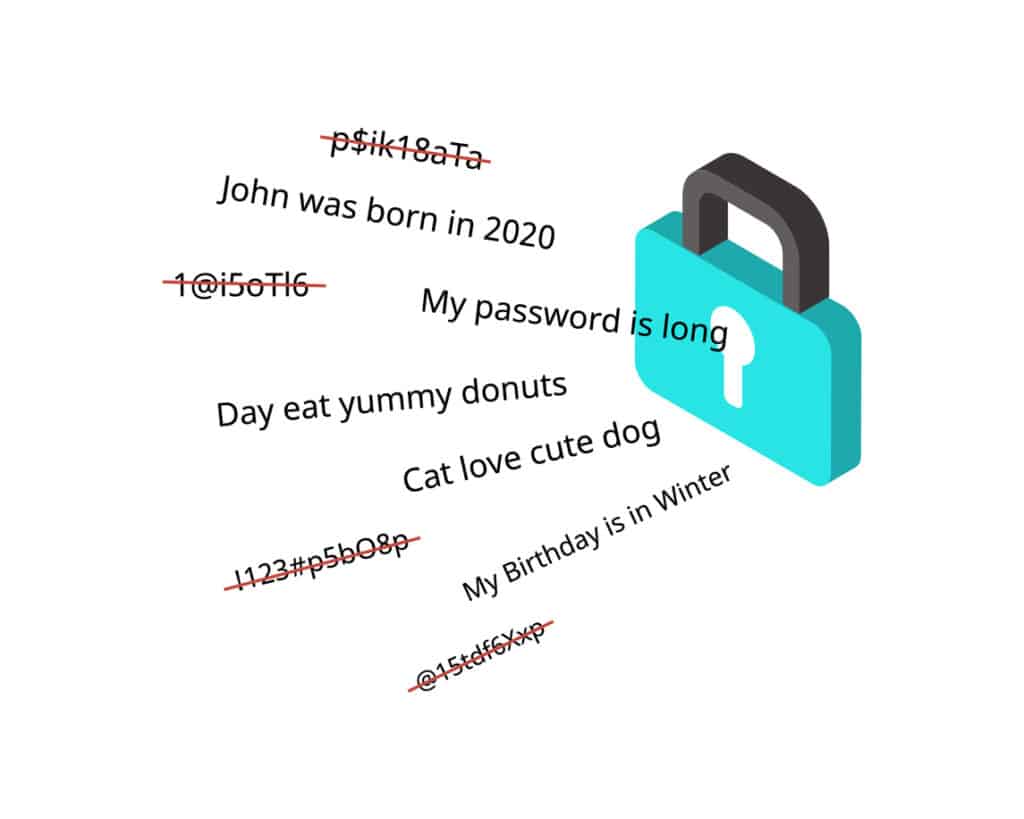In the evolving landscape of network security, passphrases can safeguard sensitive data against unauthorized access. Traditional passwords, often short and simple for ease of recall, increasingly fall prey to cyber threats. The transition from passwords to passphrases marks a significant shift in cybersecurity practices, offering both enhanced security and user-friendliness. This article delves into why they are superior for network security and highlights the critical role of entropy in this paradigm shift.
Understanding Passphrases
A passphrase is essentially a longer version of a password, typically consisting of a sequence of words or a complex sentence. Unlike traditional passwords that might include predictable or common character combinations, they are designed to be longer and more natural to remember. For example, you could use something like “Time flies over us but leaves its shadow behind.”

Why Passphrases Are More Secure
1. Increased Length
The primary strength of a passphrase lies in its length. Cybersecurity experts recommend them because their extended length makes them inherently more difficult to crack with brute force attacks compared to shorter passwords.
2. Greater Complexity and Entropy
Entropy, a measure of randomness and unpredictability in information theory, plays a crucial role in the effectiveness of their effectiveness. Passphrases generally have higher entropy than traditional passwords because they can include not only a mix of case-sensitive letters but also spaces, punctuation, and often, non-standard words or phrases. This complexity significantly increases the number of possible combinations, thus elevating the entropy and reducing predictability.
3. Enhanced Memorability
One of the biggest challenges with complex passwords is the difficulty in remembering them, especially when users are advised against reusing passwords across different sites. Passphrases, by leveraging familiar and more meaningful sequences of words, are typically easier to remember than equivalently complex passwords. This reduces the temptation for users to revert to simpler, less secure passwords or to reuse passwords across systems.
The Role of Entropy in Passphrases
Entropy is critical in evaluating the security strength of passphrases. High entropy indicates a high level of randomness and unpredictability, making a passphrase more secure against attack efforts. The entropy of a passphrase increases with:
- Length: Longer passphrases have higher entropy because there are more elements (characters, spaces, punctuation) involved, increasing the total number of possible combinations.
- Use of a mixed character set: Including numbers, symbols, and both uppercase and lowercase letters can significantly increase the complexity.
- Unpredictability: Common phrases or quotations, while longer, may not necessarily have high entropy if they are easily guessable. Original combinations of unrelated words enhance security.
Best Practices for Creating Passphrases
To maximize the effectiveness of passphrases, consider the following tips:
- Avoid common phrases and famous quotes: Choose a sequence of words that is unique and personal but unpredictable to others.
- Incorporate randomness: Use a random word generator if you’re unsure how to create a strong passphrase.
- Mix it up: Include special characters, numbers, and both uppercase and lowercase letters to increase complexity.
- Keep it lengthy: Aim for passphrases that are at least 20 characters long.
Passphrases represent a more robust approach to network security than traditional passwords, primarily due to their increased length and potential for higher entropy. By understanding and implementing strong passphrases, organizations and individuals can significantly enhance their defense against the myriad of cyber threats. As the digital landscape continues to grow, embracing passphrases is a wise step towards securing online identities and sensitive data.
In today’s digital world, cybersecurity is a cornerstone of business stability and success. Partnering with a Managed Services Provider that has a dedicated cybersecurity team offers businesses robust defenses, expert guidance, and peace of mind. By outsourcing cybersecurity to an MSP, businesses can focus on their core functions, secure in the knowledge that their cyber defenses are managed by experts. Whether it’s guarding against data breaches, ensuring compliance, or managing an efficient recovery from incidents, an MSP with a strong cybersecurity focus is an invaluable ally in the complex digital landscape.

Chris Montgomery
ThrottleNet Sales Director
cmontgomery@throttlenet.com



